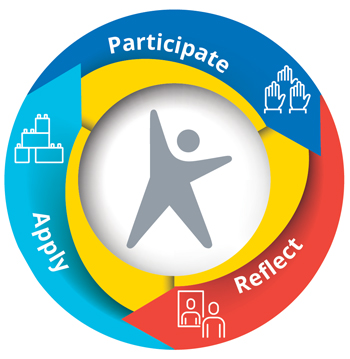 What is Cooperative Education?
What is Cooperative Education?
Cooperative Education (Co-op) provides secondary students with valuable experiential learning to apply, refine and extend their learning from the classroom into the community. Co-op allows students to earn secondary school credits while completing a work experience placement in the community. Co-op begins with an in-school pre-placement learning plan to ready students for the community experience. Students work with the Cooperative Education Teacher to find a community work experience that aligns with their interests and skills. Students are monitored, assessed and evaluated by the Cooperative Education teacher and ongoing feedback is provided from the placement supervisor or employer. Most Co-op placements are designed as half-day programs.
HDSB Cooperative Education Program
Learn About the Cooperative Education Program from HDSB Co-op Students, Teachers and Employers.
Individual Pathway Planning and Cooperative Education
- Co-op is appropriate for all post-secondary destinations including: apprenticeship, college, community, university or work.
- Co-op is available in all of our HDSB secondary schools
- Students can apply up to two Co-op credits towards their compulsory course requirements, with no limit on earning elective credits towards graduation
- Students can earn apprenticeship hours and/or be registered as an apprentice while participating in an apprenticeable trade through the
Ontario Youth Apprenticeship Program (OYAP).
See your secondary school guidance department to learn more about how Cooperative Education can fit into your education goals.
Are you an employer interested in supporting our HDSB Cooperative Education Program?